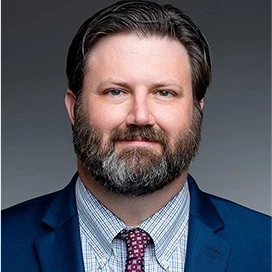
Organizational Learning in Tenuous Times
Peter Drucker’s 70+ years career of teaching, writing and consulting makes him an ideal guide to approaching organizational learning in these tenuous times.
After many years of teaching at New York University and elsewhere, Drucker taught the last 33 years of his life at a school that was named for him in 1987, the Drucker School of Management, at Claremont Graduate University, in Claremont, California.
I’ve curated the following 25 quotes on teaching, learning, and knowledge from Drucker’s books, and articles by and about him. Each is listed with its original source, so you can take deeper dives as needed. These quotes will provide powerful and concise touchpoints for his views on more-crucial-than ever subjects.
Learning
“Learn to manage your time. The secret is not to do the five million things that do not need to be done and will never be missed.” – “The Icon Speaks: An Interview with Peter Drucker,” Information Outlook, February 2002
“But the organization, too, has to become information-literate. It, too, needs to learn to ask, What information do we need in this company? When do we need it? In what form? And where do we get it?” – “Be Data Literate: Know What to Know,” The Wall Street Journal, December 3, 1992
“If you haven’t learned how to learn, you’ll have a hard time. Knowing how to learn is partly curiosity. But it’s also a discipline.” – “Peter’s Principles,” Harriet Rubin, Inc., March 1998
“Learning and teaching are going to be more deeply affected by the new availability of information than any other area of human life.” – The Age of Discontinuity, 1969
“We need a new concept of information and a new understanding of learning and teaching.” – The Age of Discontinuity, 1969
Teaching
“Education can no longer be confined to the schools. Every employing institution has to become a teacher.” – The New Realities, 1989
“The most important way to develop people is to use them as teachers. Nobody learns as much as a good teacher.” – Managing the Non-Profit Organization, 1990
“If you want to diagram my work, in the center is writing, then comes consulting, then comes teaching. I’ve never been primarily an academic. I like to teach because that’s the way I learn.” – “Scandals Nothing New to Business Guru,” Bruce Rosenstein, USA TODAY, July 5, 2002
"Just as no one learns as much about a subject as the person who is forced to teach it, no one develops as much as the person who is trying to help others to develop themselves." – Management: Revised Edition, 2008
Knowledge
“Increasingly, the true investment in the knowledge society is not in machines and tools. It is in the knowledge of the knowledge worker.” – “The Age of Social Transformation,” The Atlantic, November 1994
“It is the very nature of knowledge that it changes fast and that today’s certainties will be tomorrow’s absurdities.” – Post-Capitalist Society, 1993
"Knowledge is power, which is why people who had it in the past often tried to make a secret of it." – Post-Capitalist Society, 1993
“Knowledge is useless to executives until it has been translated into deeds.” – “What Makes an Effective Executive,” Harvard Business Review, June 2004
“Knowledge may be neutral, but what we do with it is by no means neutral.” – The Age of Discontinuity, 1969
“Knowledge work requires continuous learning on the part of the knowledge worker, but equally continuous teaching on the part of the knowledge worker.” – Management Challenges for the 21st Century, 1999
“Knowledge workers own the means of production. It is the knowledge between their ears. And it is a totally portable and enormous capital asset.” – Management Challenges for the 21st Century, 1999
"Self-development may require learning new skills, new knowledge and new manners." – Management: Revised Edition, 2008
“The acquisition of knowledge has a cost, as has the acquisition of anything. But the acquisition of knowledge has no price.” – “The Age of Social Transformation,” The Atlantic, November 1994
“The change in the meaning of knowledge that began two hundred fifty years ago has transformed society and economy.” – Post-Capitalist Society, 1993
“The community college was actually designed…to educate technologists who have both the needed theoretical knowledge and the manual skill. On this, I am convinced, rests both the still huge productivity advantage of the American economy and the…American ability to create, almost overnight, new and different industries.” – Management Challenges for the 21st Century, 1999
“The critical feature of a knowledge workforce is that its workers are not labor, they are capital.” – “They’re Not Employees; They’re People,” Harvard Business Review, February 2002
“The knowledge society must have at its core the concept of the educated person.” – Post-Capitalist Society, 1993
"The productivity of knowledge requires increasing the yield from what is known - whether by the individual or by the group." – Post-Capitalist Society, 1993
"Today the center is the knowledge worker, the man or woman who applies to productive work ideas, concepts and information rather than manual skill or brawn." – The Age of Discontinuity, 1969
“What matters is that the knowledge worker, by the time he or she reaches middle age, has developed and nourished a human being rather than a tax accountant or a hydraulic engineer. Otherwise, a few years later, tax accounting or hydraulic engineering will become awfully stale and boring.” – “The Icon Speaks: An Interview with Peter Drucker,” Information Outlook, February 2002
If these quotes resonate with you, consider how you can start applying them inside and outside of the workplace. If you're not already teaching, look for opportunities to teach, formally or informally, within your workplace, for professional associations and for universities, as perhaps an adjunct professor or guest lecturer.
Regarding the latter, the preparation for doing one can help to frame and organize your own work/life experience, and might be useful in considering options for future career changes or pivots. Sharing your knowledge and wisdom can be some of your most meaningful activities, improving people’s careers and lives.































